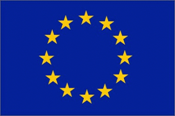SPACE USB
SPACE Universal Serial Bus

The "SPACE USB" joint project aims to develop standardized multifunctional interconnects for future orbital space missions. These interconnects can be utilized to build subsystems for sustainable, complex structures in orbit. The main objective is to formalize and demonstrate a universal, robust, and unambiguous multifunctional interconnect standard, inspired by the existing USB (Universal Serial Bus). The EU-funded "SPACE USB" project examines the functionality and practicality of the demonstrated connection protocols.
| Duration: | 01.01.2024 till 31.12.2025 |
| Donee: | German Research Center for Artificial Intelligence GmbH |
| Sponsor: | European Union |
| Grant number: | HORIZON-CL4-2023-SPACE-01-12 101135215 |
| Website: | https://www.linkedin.com/company/space-usb/ |
| Partner: |
THALES ALENIA SPACE France SAS, |
| Application Field: | Space Robotics |
| Related Projects: |
PERIOD (OG12)
PERASPERA In-Orbit Demonstration (Operational Grant 12)
(01.2021-
12.2022)
SIROM (OG5)
Standard Interface for Robotic Manipulation of Payloads in Future Space Missions
(11.2016-
02.2019)
|
Project details
The nature of space flight has significantly constrained every space mission since the launch of the first man-made satellite. This usually results in highly integrated disposable space systems that are difficult to maintain and/or upgrade if necessary. At the same time, the existing mission paradigm makes it difficult to utilize the current proliferation of space debris in a more sustainable way. All these facts point to the need to change the morphology of spacecraft design and the way spacecraft are used to enable cost-effective maintenance and assembly in orbit.
Modular robotics comes into play on the way to more sustainability and better usability and maintainability of space systems.
The current space system research is concentrated on modular system construction. This might be helpful in the elimination of space debris by, for example, allowing defective modules to be replaced by a combination of modular parts without having to replace entire and complex space systems. The fundamental importance of standardized multifunctional interconnecting elements is recognized in that case. A multifunctional interconnect, which establishes mechanical, electrical, informational, thermic, and fluidal connections, is developed for that purpose.
Developments are currently focused on the construction of space systems such as satellites using modules. This can help to reduce space debris by, for example, allowing defective modules to be replaced by a combination of modular parts without having to replace entire and complex space systems, as is currently the case.
For this purpose, it is of great importance that standard connecting elements with a wide range of functions are used. To be able to combine the modules with each other, a so-called multifunctional interconnect is required, which covers various functions such as mechanical connection as well as transmission of electrical power, data, heat, and fluids.
Currently, there are no universal standards for in-orbit multifunctional interconnects for these purposes. Within the scope of the joint project "SPACE USB," a standardization will be provided that makes it possible to make large and complex structures for low-orbit space missions by using small sub- and modular systems. The European-made interconnects, SIROM, HOTDOCK, and iSSI®, are not compatible and interconnectable due to their mechanical, electrical, and software differences. The SPACE-USB project aims to standardize them or to propose a way to allow interconnectivity, similar to the USB (Universal Serial Bus) standard in the information technology domain. The definition of this interconnection standard should enable the construction, maintenance, or reconfiguration of large structures by connecting such multifunctional interconnects in space. In the context of this project, the key factors for standardization will be identified and recommended as a standard. Then an adapter will be developed to use these three European multifunctional interconnects together.
The German Research Center for Artificial Intelligence (DFKI), a robotics innovation center with many years of experience in the development of multifunctional interconnects for terrestrial and extraterrestrial applications, will play a consultative and decisive role in the standardization.
The "SPACE USB" project of the EU-funded HORIZON-CL4-2023-SPACE-01-12 initiative targets the implementation and formalization of a high level of standardization for future multifunctional interfaces and to demonstrate their application.

